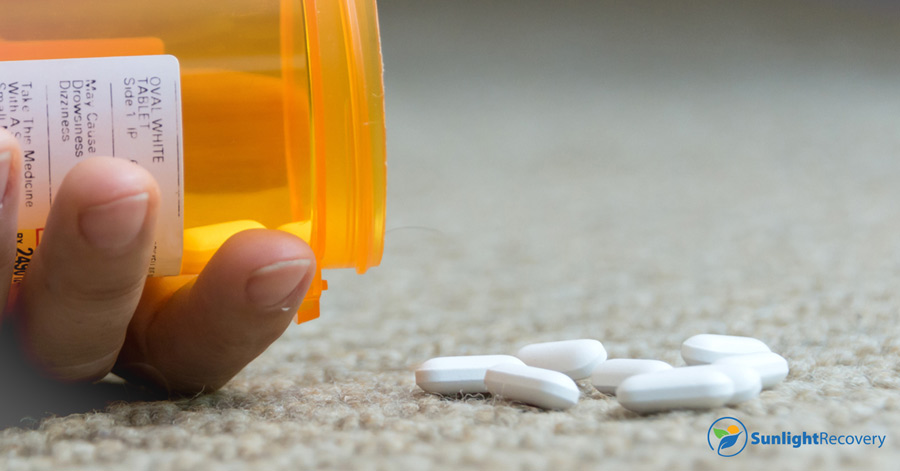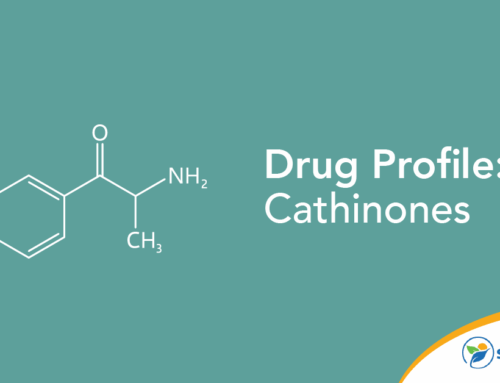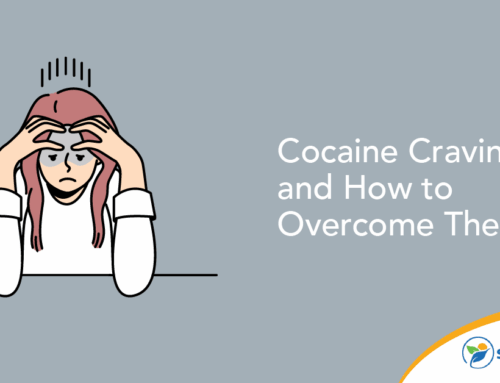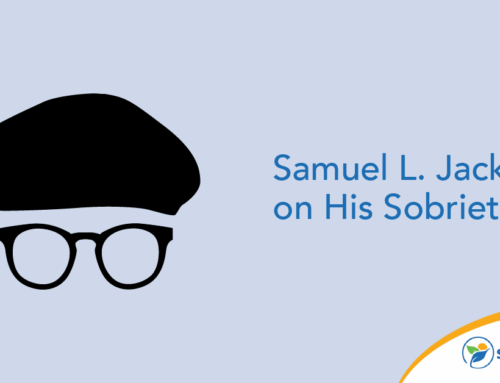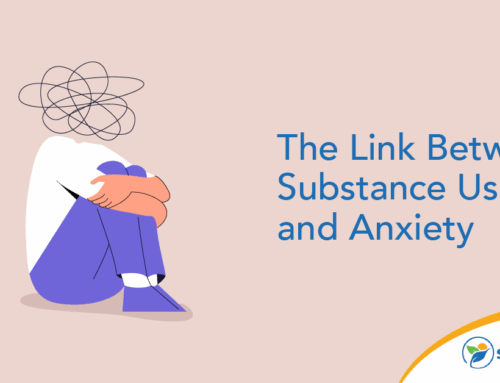Updated June 19, 2023
As the rates of diagnoses for anxiety and related disorders continue to rise in individuals from adolescent through adult age, so does the number of prescriptions written for medications such as Xanax. People who’ve been prescribed this drug may be wondering, “Can you overdose on Xanax?” The answer is yes, it’s possible to overdose on Xanax. To avoid this, it’s important to learn how the drug works, the signs and symptoms of an overdose and how to get help if you’re dealing with substance abuse.
What Is Xanax and How Does It Work?
Xanax was first released in the early 1980s and quickly became the drug of choice for anxiety and panic disorders because it works fast. Aside from anxiety, Xanax also acts as a sleep aid and a muscle relaxer. It’s part of a class of medications called benzodiazepines that increase the levels of GABA, a neurotransmitter that regulates anxiety. The overproduction of GABA depresses the central nervous system, which causes the body to relax.
Xanax is one of the most widely prescribed medications for anxiety and panic on the market, and while it has a wealth of benefits, it’s extremely addictive and has some serious withdrawal symptoms. It’s also common for those without a prescription to obtain the medication illegally for recreational use, which can lead to addiction and overdose.
The History and Popularity of Xanax
For those who suffer from anxiety and panic disorders, a pill that alleviates their troubles in just a few minutes is a dream come true. Interestingly, Xanax was originally created as a sleep aid to help people with insomnia get more rest.
Xanax, also known as alprazolam, belongs to the family of drugs called benzodiazepines. These substances cling to gamma-aminobutyric acid (GABA) receptors in the brain and produce a calm, relaxed state in users. Xanax was created in the late 1960s, and after a series of administrative challenges, the drug was finally released in the 1980s. By the 1990s, it was one of the most commonly prescribed psychiatric drugs in the world.
Why Someone May Be Inclined to Use More Xanax Than Prescribed
Xanax prescriptions are based on an individual’s needs, however, doctors generally tend to prescribe anywhere from 0.25 to 0.5 milligrams of Xanax to be taken several times per day. In some cases, a doctor may change the dosage to find the prescription strength that’s right for the individual.
While Xanax is fast-acting, it’s not a long-acting drug. This means the effects of Xanax tend to come on and wear off quickly. On average, Xanax users can expect to feel the drug kick in within a few minutes after consumption, and the impact might last several hours before dissipating. Someone might use more Xanax than they’re prescribed to make the euphoric feeling last longer.
Another reason for taking more Xanax than prescribed is to combine it with another substance for an enhanced effect. It’s not uncommon for individuals abusing Xanax to also use other drugs such as marijuana in an attempt to heighten the high or get relief from severe anxiety or other mental health challenges.
A person may also take more Xanax because they’ve built up a tolerance to the drug at their current dosage. Drug tolerance happens when an individual develops a resistance to a substance after continued use and the dosage is no longer as effective. A medical professional may adjust the dosage if a person shows a tolerance to their current Xanax prescription. These changes should only be made under the direction of a qualified care provider.
How Much Xanax Is Considered an Overdose?
A Xanax overdose often occurs when you take the medication with other drugs or combine it with alcohol. Both alcohol and Xanax are depressants, which slow down your heart and respiratory rate to dangerously low levels. Using the two together increases your risk of an overdose. Opioids, like codeine, hydrocodone and morphine, also have a sedative effect and should never be combined with Xanax due to the risk of excessive respiratory distress, excessive sleepiness and even death.
Can you die from Xanax? While any amount over the prescribed amount is considered an overdose, a lethal overdose can occur at higher dosages. Most physicians prescribe 0.25-0.5 milligrams three times per day, with the maximum recommended dose 4 milligrams per day. Those with liver failure and other medical conditions may require even smaller starting doses. It’s always important to follow your doctor’s recommendations to avoid an accidental overdose. Knowing how much Xanax is lethal may be unknown, but you should never take more than 10 milligrams per day unless you’re under a doctor’s supervision and recommendations.
What Happens When You Take More Xanax Than Prescribed or Intended?
The effects of too much Xanax can range from mild to life-threatening, depending on a number of factors. When it’s taken alone, an over-consumption of Xanax can lead to drowsiness, difficulty concentrating, headaches, nausea and other unpleasant symptoms. In severe cases, overdosing on Xanax can lead to seizures and coma that can be fatal if not treated properly.
It’s important to note that overdosing on Xanax becomes much more serious when other drugs or alcohol are involved. A major reason mixing Xanax with other substances is so harmful is because benzodiazepines have a sedative effect. This means they relax the central nervous system and slow down brain function. Combining Xanax with other sedatives, such as Ambien or Klonopin, can cause your bodily systems to slow to dangerous levels and lead to depressed breathing patterns.
As with all drugs, there’s also a chance of addiction with Xanax. Signs of addiction can include:
- Feeling intense cravings for Xanax
- Continuing use regardless of negative side effects
- Experiencing withdrawal symptoms when you attempt to reduce consumption or stop taking the drug
How much Xanax is too much depends on your health circumstances and the strength of your prescription. You shouldn’t take more than prescribed and should never take medication that’s not prescribed to you. Ultimately, you should follow your doctor’s instructions regarding your prescription and contact your provider if you feel your Xanax consumption needs to change.
What Are the Signs and Symptoms of a Xanax Overdose?
The signs and symptoms of a Xanax overdose resemble the same side effects as a regular dose. This includes drowsiness, blurred vision, confusion and a lack of coordination. Some of the more serious signs and symptoms include:
- Hallucinations
- Nausea
- Joint pain
- Seizures
- Shallow breathing
- Loss of consciousness
- Slurred speech
- Reduced reflexes
Can You Overdose on Xanax, and What Should You Do If It Happens?
Yes, it’s possible to OD on Xanax. If you overdose, you may notice symptoms similar to the effects of alcohol intoxication.
Taking too much Xanax can quickly lead to a medical emergency, so it’s important to seek help right away if you start to experience shortness of breath or loss of consciousness. Try to recall details such as how much Xanax you took, any other substances you consumed and how much, if any, you’re prescribed to take. This information can help health care providers make decisions on the best course of action for managing your overdose.
Your immediate treatment may include receiving activated charcoal, a form of carbon that decontaminates the gastrointestinal organs when harmful substances are ingested. A less common treatment for a Xanax overdose is gastric lavage, or stomach pumping. Once your initial overdose has been managed, your care provider may refer you for additional mental health treatment.
What Should You Do If You Suspect Someone Has Overdosed on Xanax?
Anytime you suspect someone has overdosed on Xanax, you should seek medical attention immediately. There’s no way to know immediately how much Xanax is lethal for an individual. The effects of the overdose may not be known or even noticed at first but can be fatal. Stay with the individual until help arrives, or get them to an emergency room as soon as possible. If the person is on their back, you may need to help move them onto their side to prevent asphyxiation if they become nauseous and vomit.
Long-Term Impacts of Xanax Use and Overdose
There can also be long-term effects of Xanax use and overdose, sometimes serious and/or lethal.
Historically, most people recover from Xanax overdose. Since January 2019, however, fatality rates of benzodiazepine prescription and illicit overdose rose by 21.8 percent and 519.6 percent, respectively, in correlation with an increase in the illicitly manufactured benzodiazepine supply. Over 90 percent of these overdose deaths also involved either prescription or illicit opioids, highlighting the dangers of poly-drug use. It’s especially dangerous when involved with regular or frequent Xanax use as this drug can accumulate and remain stored in your body over a prolonged period, increasing the likelihood of lethal dosage or interaction with other drugs.
Due to the nature of Xanax, a number of effects and symptoms can persist even after overdose recovery. Since Xanax is a respiratory depressant, overdosing can often cause hypoxia, a condition that results when the brain has insufficient oxygen. In severe cases, hypoxia can lead to coma and long-term neurological issues such as hallucinations, seizures, manic behavior, thoughts of self-harm, and aggressive compulsions.
Long-term use of Xanax may also alter the nervous system and neurological pathways, cause mental health issues such as depression, impair cognitive functioning, memory, and attention, and lead to physical issues. Among them: kidney and liver damage, irregular heart rates, blood pressure issues, and respiratory struggles.
Xanax Addiction and Overdose Stats
In addition to an increase in overdose fatalities, Xanax use and other benzodiazepines demonstrated other disturbing trends:
- Overall emergency department visits related to benzodiazepine use increased by 23.7 percent
- Of these visits, there was a 34.4 percent increase in those with co-opioid use and a 21 percent in those without
- Between April 2019 to June 2020, overall benzodiazepine deaths increased by 42.9 percent
- Between January 2019 and June 2020, benzodiazepines were involved in 17 percent of all drug overdose deaths
Preventing Xanax Overdose
Numerous factors can contribute to the likelihood of Xanax overdose, and the only way to prevent overdose is to avoid using Xanax altogether. To decrease the risk of overdose, consider the following tips:
- Never use Xanax recreationally or without a prescription.
- If prescribed Xanax, don’t exceed your doctor’s exact dosage and frequency recommendations. Never share your prescription with others.
- Do not mix Xanax with opioids, alcohol, or other benzodiazepines, as these substances can compound the nervous system effects to lethal levels.
Treatment Options for Xanax Overdose
Supportive care is provided in a medical facility for an overdose on Xanax. Activated charcoal, dialysis and bowel irrigation are often given for other medication overdoses but can’t be given for a benzo overdose. For mild overdoses on Xanax, doctors may monitor an individual’s vital signs, give them IV fluids and insert a breathing tube for those in respiratory distress.
Flumazenil injections are administered in extreme overdose situations to reverse the sedative effects of Xanax. These injections also carry risks, such as seizures, so this treatment isn’t routinely recommended.
You’re not alone when it comes to addressing Xanax abuse. At Sunlight Recovery, we’re ready to help you get back on track with your medication so you can get back to being you. Contact us today to start your journey toward overcoming substance abuse and addiction.


